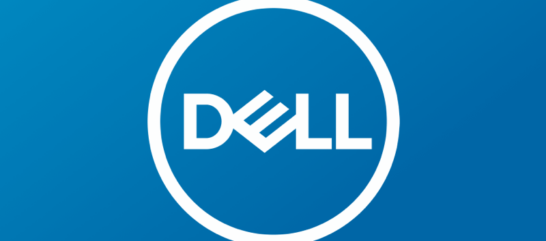Staying relevant is essential for any business, but staying ahead of the curve isn’t always easy. Areas that many companies tend to overlook when it comes to having a competitive edge are employee advocacy and career development.
As your team gains skills and knowledge, chances are, they’ll want to progress, and professional development is key. Yet, in recent years, career development and employee advocacy has been put on the back burner for a lot of industries. But this presents you with quite a unique opportunity!
In this article, we’re going to talk about the benefits of investing in employee advocacy and encouraging your key players to focus on career development. So grab a coffee, and let’s get into it!
What Is Employee Advocacy?
First, let’s recap what employee advocacy actually is.
Employee advocacy is the practice of empowering employees to represent and promote their company’s values, mission, and brand on social media and other digital channels. Essentially, it is a type of marketing that leverages the power of employee networks to increase brand awareness, trust, and, ultimately, revenue.
Employee advocacy has become increasingly important for B2B companies lately, especially with the rise of social media and, in particular, LinkedIn. The adoption of online communities means that businesses can no longer rely solely on traditional marketing methods to build their brand and attract new customers.
Employee advocacy, when done right, can have a significant impact on a company’s bottom line. In fact, according to recent data, 84% of consumers value recommendations from friends and family, and 77% of consumers are far more likely to make a purchase after hearing about it from someone they trust. This means encouraging employee advocacy as a business can really help improve brand awareness and increase your sales potential!
Additionally, companies that encourage employee advocacy are seen as more trustworthy and authentic, which can help to build long-lasting relationships with clients and customers.Want to learn more? Here’s everything you need to know about employee advocacy.
Why B2B Companies Should Prioritize Employee Advocacy
B2B companies should prioritize employee advocacy for several reasons.
It allows companies to tap into the power of their workforce.
The average employee has a network of 400 people, many of whom could potentially become customers or clients. By encouraging employees to promote their brand on social media and other channels, B2B companies can significantly increase their reach and generate new business leads.
It’s the most cost-effective and authentic way to market a company.
While traditional marketing methods can be expensive, employee advocacy is essentially free. By empowering employees to share their brand story on social media, companies can significantly reduce their marketing costs while still achieving their business goals.
It build trust and authenticity for B2B companies.
In a world where consumers are increasingly skeptical of traditional advertising, employee advocacy can help companies build more authentic relationships with their target audience.
And, when it comes to career growth, employees can enhance their own online credibility and position themselves as industry experts by investing in employee advocacy programs. In fact, 86% of employees involved in formal advocacy programs revealed that it had a positive impact on their careers!
By leveraging the power of their workforce, B2B companies can show that they are committed to transparency, honesty, and integrity, which helps build long-lasting customer relationships.
The Connection Between Employee Advocacy and Career Development
Employee advocacy and career development are intimately linked.
By investing in employee advocacy, B2B companies can demonstrate their commitment to helping employees grow and develop in their careers. In doing so, they can create a workplace culture that fosters innovation, creativity, and collaboration.
One way that B2B companies can promote career development through employee advocacy is by encouraging employees to participate as themselves on LinkedIn. Engaging in the comments of other people’s posts is a great place to start!
LinkedIn employee advocacy is a great example of how companies can utilize employee networks to drive career development.
The platform offers employees a unique opportunity to showcase their expertise, connect with industry peers, and build a personal brand. By encouraging employees to engage with LinkedIn and other social media platforms, companies can help employees to establish themselves as thought leaders and expand their professional networks.⁴
Another way that employee advocacy and career development work together is by creating a culture of learning and development within the workplace.
By encouraging employees to share their knowledge and expertise with others, B2B companies can create a more collaborative and supportive work environment. This, in turn, can help employees to develop new skills, gain new perspectives, and grow in their careers.
Final Thoughts on Employee Advocacy and Career Development
Investing in employee advocacy is a smart move for any B2B company that wants to improve brand awareness, build trust with customers, and foster employee growth and development.
Just take the IT software company Ivanti, for example. The company used an employee advocacy program to supercharge its brand awareness and reached 16 million people on social media in the first month!
By empowering employees to become advocates for their brand, companies can tap into the power of social networks and build a competitive advantage in the marketplace. However, to successfully implement employee advocacy, B2B companies must be willing to invest time and resources in training and educating their employees.
Training is something we excel at and take great pride in at EveryoneSocial, so don’t hesitate to ask us how our client success team can work with you every step of the program. Get in touch with us, we’d love to discuss how advocacy can help your organization facilitating employee career growth and reach your business goals.
In short, employee advocacy training should focus on educating employees on how to effectively represent themselves (i.e. building a professional personal brand) and their company on social media and other digital channels. This includes providing guidelines on what can and can’ be shared, as well as best practices for engaging with others online.
Additionally, B2B companies should provide ongoing support and feedback to employees who participate in employee advocacy programs. This can include monitoring social media activity, providing regular updates on the company’s brand story and mission, and recognizing employees who go above and beyond in promoting the company’s values.
Ultimately, employee advocacy is not just about promoting a company’s brand. It is about empowering employees to become thought leaders, influencers, and advocates for their industry.
By investing in employee advocacy, B2B companies can create a more engaged and empowered workforce, multiplying your employees’ social media reach for optimal networking and career growth!
Want to empower your workforce through employee advocacy? Let’s chat!















